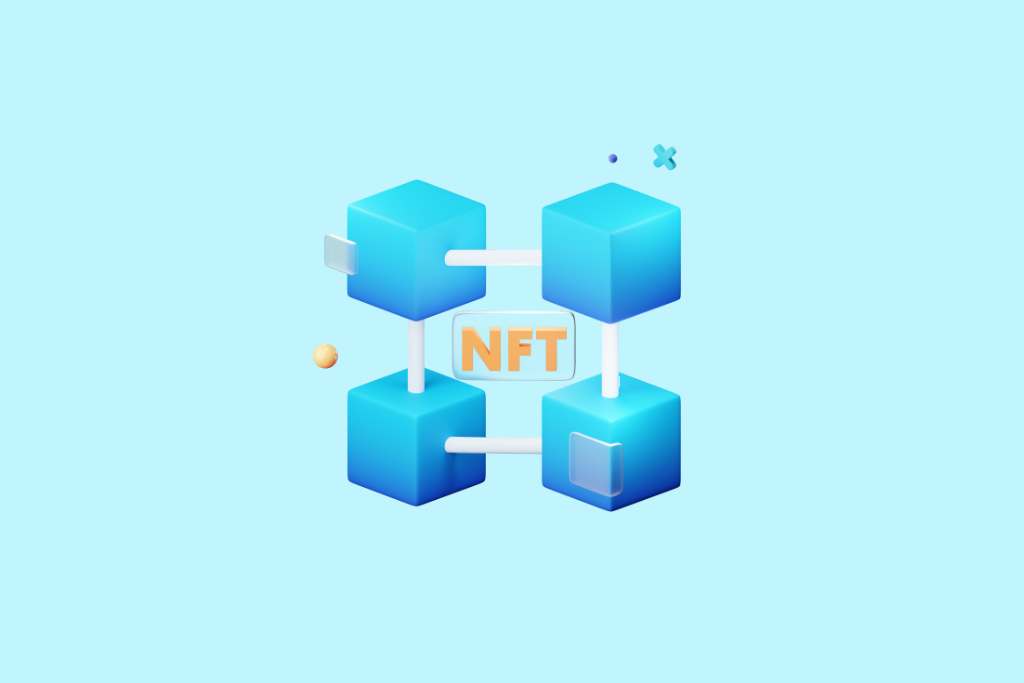How Important Are NFTs and Blockchain in the Metaverse?
As internet speeds, latency and accessibility rapidly improve in the digital realm, ideas like the metaverse have quickly taken the tech world by storm. Described as “an integrated network of 3D virtual worlds”, technologies like Non-Fungible Tokens (NFTs) and blockchain could play a leading role in a Web 3.0 future.
But how important are they? As these futuristic concepts grow and change over the coming years, their integration with a vast and potentially limitless world like the metaverse could revolutionize daily life. Here, we delve into this fascinating technology to explore how NFTs and blockchain can help shape our future.
What is the Metaverse?

Facebook and Meta founder Mark Zuckerberg announced his concept for the metaverse in October 2021, sending the internet into a spin as people imagined what it could mean for work and leisure. Drawing inspiration from the 1992 sci-fi novel ‘Snow Crash’, it was author Neal Stephenson that first coined the term.
At the moment, we engage with the internet entirely through our screens. However, metaverse marketing could make the online experience far more immersive, with an interactive digital economy facilitated by virtual reality and augmented reality technology.
For example, you might attend a live music concert, shop for clothes in a store without leaving your home, or join your colleagues for an avatar-based virtual meeting. With the metaverse letting you experience all these events – and endless others – through a powerful combination of digital technologies, the likes of NFTs and blockchain may play an essential role.
NFTs in the Metaverse

NFTs have become a hugely talked-about subject in recent years, with countless people looking to add these items to their digital collections. While NFT transactions are most commonly associated with digital art, there are also NFT marketplaces for music, videos, and even real estate.
So, how do NFTs fit into a potential metaverse? NFTs have caused a stir amongst crypto users and Web 3.0 believers because these assets are unique and immutable by design. This structure would help users own and interact with digital items in the metaverse, creating a fair and transparent online economy that fosters social and community experiences.
Perhaps you own a certain NFT that gives you special powers in a metaverse-based video game. Or maybe you’ve purchased NFTs of designer clothing to level up your digital avatar. You could even use NFTs to claim a virtual property in a metaverse city, ensuring you have the ideal spot to call your own.
Blockchain in the Metaverse

Part of the appeal of crypto to millions of users is that it’s decentralized and mostly anonymous. But how can transactions be trustworthy if an entity like a bank isn’t involved? This is where the blockchain comes in, as it functions as a digital ledger where each transaction is stored with a unique signature that’s impossible to fake or modify.
As anyone using the blockchain can easily verify transactional information, users can trust the system when selling and purchasing assets. With the blockchain cryptographically protecting your items through its tamper-proof system, this will help secure your information and belongings in the metaverse.
Blockchain also enables the creation of smart contracts. These tiny pieces of code stored inside NFTs execute themselves once pre-determined conditions are met. Today, digital artists use these to earn a commission when a buyer of their work sells it to another person in the future. This tech can be used with any blockchain-based item to benefit individual users.
Examples of NFT and Blockchain the Metaverse
Although the metaverse has been discussed far and wide, a fully-fledged digital world will take many more years to reach. Yet as hugely popular video games like Fortnite and Second Life have already shown how these concepts can come to life, it’s easy to imagine numerous examples of how NFTs and blockchain will have a big say in a metaverse setting.
Next-Gen Gaming

Metaverse games have the potential to be even more interactive than the existing landscape, with powerful AR and VR technology making these encounters even more impressive. In combination with NFTs, your character could be entirely unique to you, with items from your collection transported into the digital world as collectibles and accessories.
The blockchain has already given rise to play-to-earn games, where players can collect virtual items and sell them for real crypto. With games like Alien Worlds Boosted and Legacy showcasing this potential, aligning NFT marketplaces and blockchain technology with metaverse marketing and games could have a massive future.
Art Galleries

Art is undoubtedly the asset most associated with NFTs. And for good reason, as minting and selling NFTs has proved remarkably lucrative for thousands of global artists. For example, American digital artist Beeple sold his landmark series, Everydays: the First 5000 Days, for a mind-blowing $69 million, helping to kickstart an investment craze.
In the metaverse, users will almost certainly be able to visit virtual art galleries filled with NFTs stored on the blockchain. If we take our imagination a little further, it’s entirely feasible that you could purchase these NFTs for your own collection, helping the artists earn a great living from their creative output.
Event Access

With aspects of the metaverse reflecting real life, having a way to control access to specific spaces and events is a priority. This way, businesses operating in the metaverse can provide users with a valuable service. With NFT tickets helping to overcome issues with the existing industry, this same technology could apply to the metaverse.
For example, your corner of the metaverse might feature live event spaces that can only be accessed with the digital credentials stored inside a ticket purchased as an NFT. This could give you exclusive benefits that automatically verify within the metaverse, helping event organizers operate a seamless event.
Chat with the Experts
There’s much to figure out with futuristic spaces like the metaverse. But with companies like Meta pushing the boundaries of the digital landscape, it won’t be long until an interactive virtual environment makes sense for everyday people.
If you want to benefit from the latest metaverse marketing innovations, the experts at First Page can help tailor an award-winning strategy. Get in touch with our team today to discover how we’ll help your business outperform its competition with a high-tech digital solution.
















